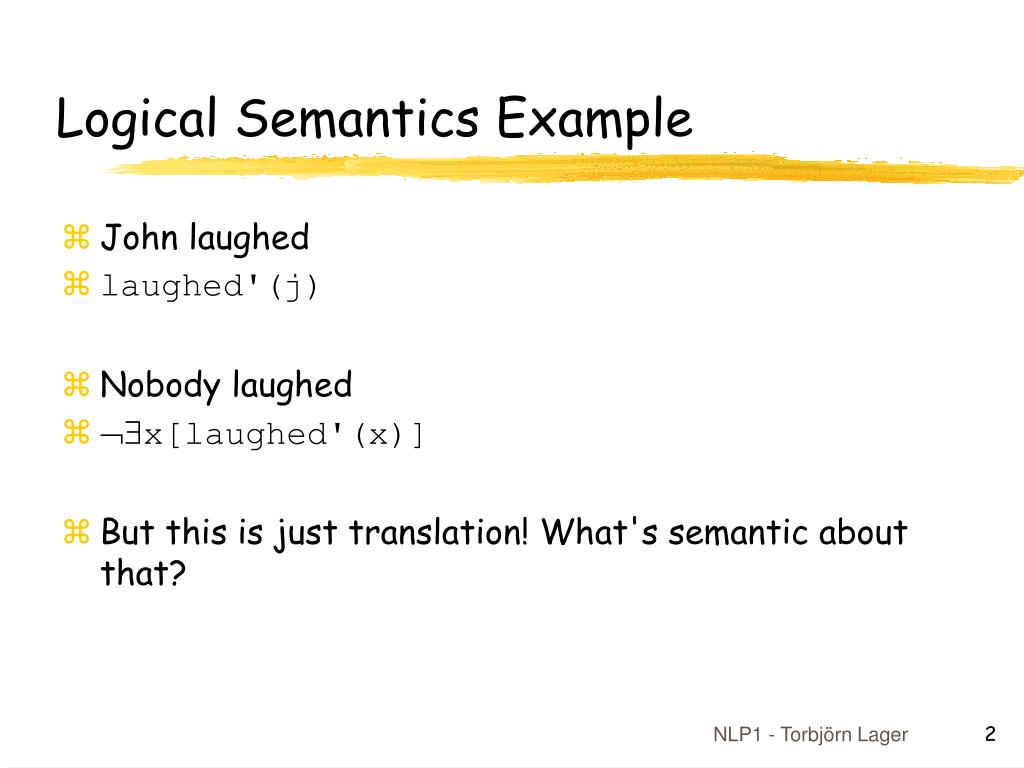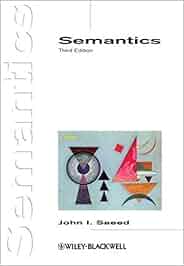
Syntax: the formal relation of signs to each other Non-literal uses of language are called figurative and are described by a host of rhetorical terms including metaphor, irony, metonymy, synecdoche, hyperbole and litotes. The basic distinction: distinguishing between instances where the speaker speaks in a neutral, factually accurate way, and instances where the speaker deliberately describes something in untrue or impossible terms in order to achieve special effects. By going on to filter out certain types of grammatical information, we get to propositions, which are descriptions of states of affairs and which some writers see as a basic element of sentence meaning. By filtering out certain types of(especially phonetic) information we can get to abstract grammatical elements, sentences. To sum up, utterances are real pieces of speech. Proposition: a description of an event or situation which might be shared element in different sentences. Sentences are abstract grammatical elements obtained from utterances. The most concrete is utterance an utterance is created by speaking(or writing) a piece of language. The meaning of a word derives both from what it can be used to refer to and from the way its semantic scope is defined by related words.


To set up a metalanguage might help too with the problem of relating semantic and encyclopaedic knowledge. Moreover it should satisfy scientific criteria of clarity, economy, consistency, etc.

would not be unconsciously biased towards English, French, etc. An ideal metalanguage would be neutral with respect to any natural languages, i.e. We use metalanguage here with its usual meaning in linguistics: the tool of description. what particular utterances mean in context.Ĭope with the problem of circularity, one solution is to design a semantic metalanguage with which to describe the semantic units and rules of all languages.General knowledge: about the way the world is Linguistic knowledge: about the meaning of words

how to make sure that our definitions of a word's meaning are exact(the question of whether linguistic knowledge is different from general knowledge).


 0 kommentar(er)
0 kommentar(er)
